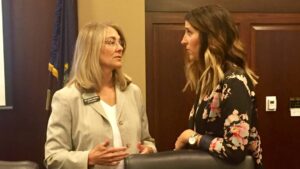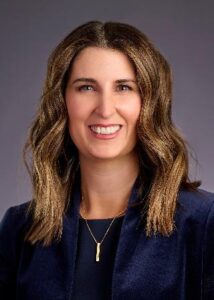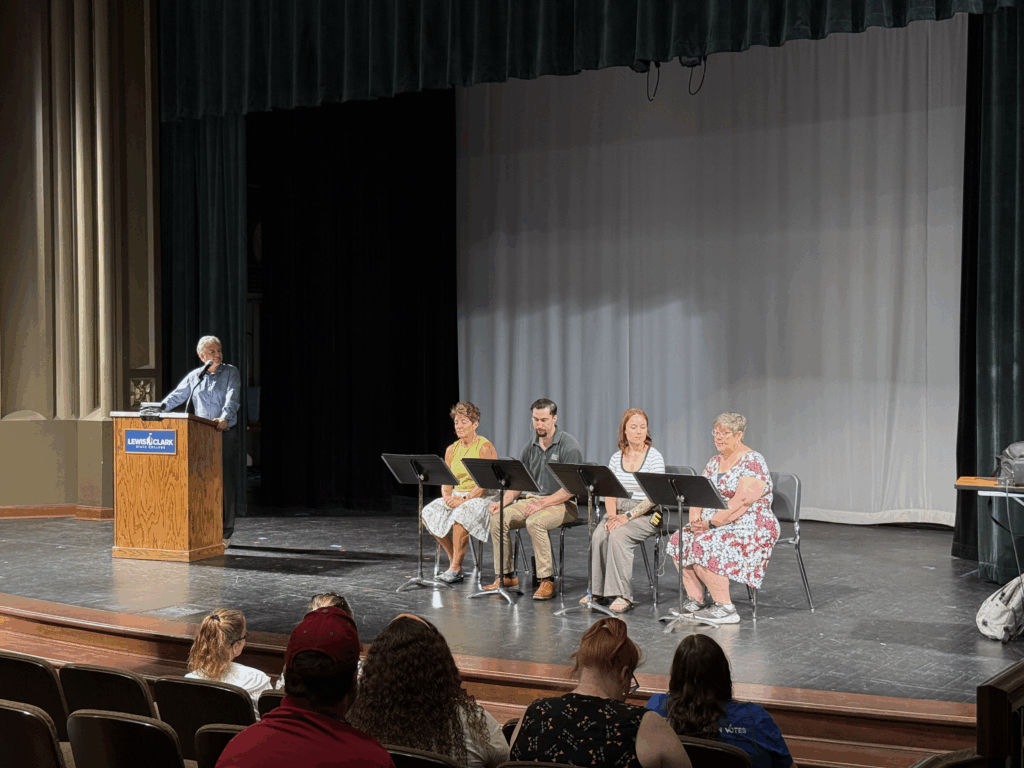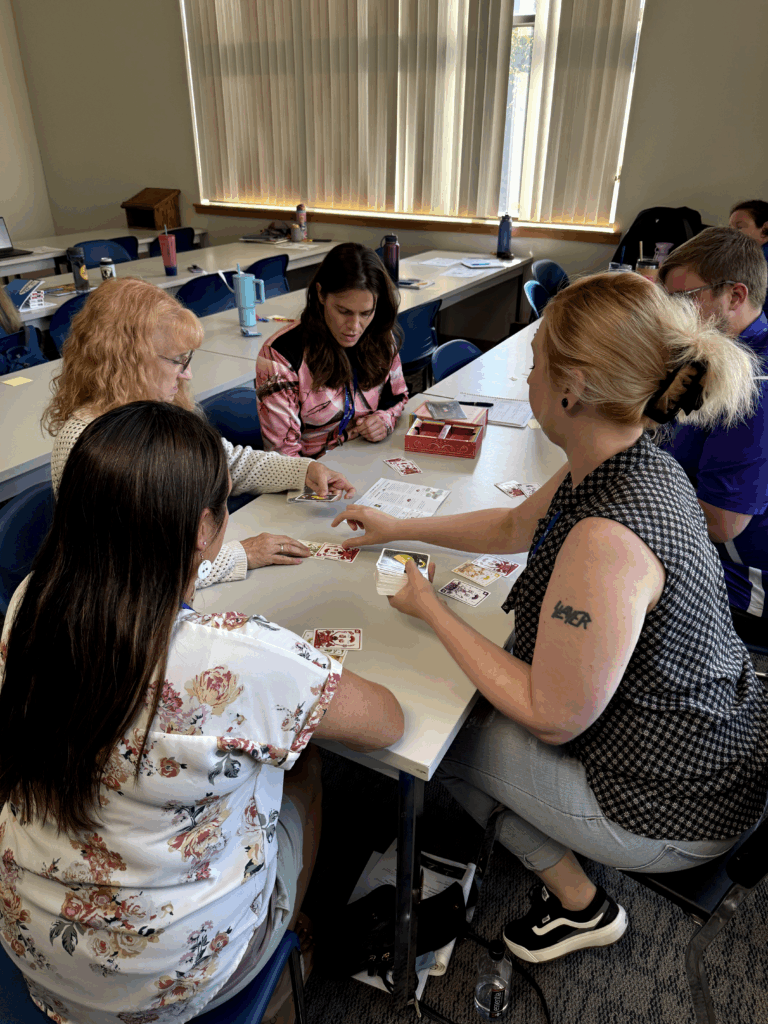The fight for vouchers will shake the Idaho Statehouse once again during the upcoming legislative session — and on Tuesday, legislators and pro- and anti-voucher advocates gave a preview of the arguments the public can expect.
The Institute for Advancing American Values at Boise State University hosted a panel discussion featuring three pro- and two-anti voucher advocates. The panel was timely, as policymakers on both sides of the debate gear up for this winter’s inevitable challenge to Idaho’s rare status as a deeply conservative but voucher-free state. A number of political heavyweights, including Idaho Speaker of the House Mike Moyle (R-Star), have signaled a renewed push for vouchers.
IEA members have long opposed vouchers — or siphoning public tax dollars away from public schools to pay for private or parochial school tuition — in any form. IEA’s opposition to vouchers is one of the key reasons Idaho remains one of the few states dominated politically by conservatives without voucher programs of some type. That has made it a target for national voucher proponents eager to bring these taxpayer-funded government subsidies for private schools and private school vendors to as many states as possible.

Rep. Wendy Horman (R-Idaho Falls) and Sen. Lori Den Hartog (R-Meridan) are among the Idaho Legislature’s most ardent and vocal voucher proponents.
Pro-voucher voices on the panel included Rep. Wendy Horman (R-Idaho Falls); Sen. Lori Den Hartog (R-Meridian); and Joey Magaña, vice president of policy and advocacy for EdChoice, a voucher-advocacy group closely aligned with other out-of-state pro-voucher policy mills like the State Policy Network and the National Freedom Foundation. These out-of-state groups are now spending hundreds of thousands of dollars on Idaho elections and the lobbying of policymakers to bring vouchers to Idaho.
READ ABOUT THE BILLIONAIRES FUNDING ANTI-PUBLIC SCHOOL EFFORTS IN IDAHO
Speaking against vouchers were Sen. Janie Ward-Engelking (D-Boise), and Audra Talley, a board member of Home School Idaho. A crowd of about 75 people attended the event.
On Tuesday, the divide between the two sides couldn’t have been more stark.

Sen. Janie Ward-Engelking (D-Boise)
“We have school choice in Idaho,” said Ward-Engelking, who is a retired educator and IEA member. “This is about privatizing education in Idaho. It’s about dismantling public education.”
Horman, who also co-chairs the Legislature’s powerful joint budget committee, came forward with a new line of attack. Horman and Den Hartog are among the Legislature’s most vocal voucher proponents and co-sponsored voucher legislation that was narrowly defeated last year.

Rep. Wendy Horman (R-Idaho Falls)
“To me, school choice is the civil rights issue of our time,” Horman said to the skeptical crowd. “There is a moral case to be made for supporting every student, no matter where they’re learning.”
Turning the ZIP Code Argument on Its Head
Voucher and pro-public education advocates have long argued that the disparity between school districts’ ability to provide a quality education is evidence of the State of Idaho’s disinvestment in public schools.
Because local voters will not approve local bond and levy measures, many school districts do without. Instead, pro-public education advocates, including IEA members, say the State of Idaho should use its coffers to ensure every school, whether in a poor or wealthy ZIP code, has the means to educate children well.
On Tuesday, Horman tried to turn that argument on its head.
She referenced historically redlined areas of Idaho — neighborhoods where residents were often denied access to bank assistance like loans or lines of credit. Horman gave the example of an unnamed Boise school where students are more likely to succeed or fail based on whether their homes are on the north or south side of State Street. (For many decades, homes on the south side of State Street were more likely to be owned by people of color or immigrants.)
“One of the arguments against school choice is it creates segregation,” she said. “I argue that it’s already there depending on where you live, because some of our neighborhoods are too often segregated by income, so I want to see that separation of housing from the opportunity for an excellent education.”
Ward-Engelking pushed back. She agreed that ZIP code is one of the primary indicators of a student’s success, but places the blame for that discrepancy squarely on the state.
“Our system of funding education, because we don’t adequately fund it at the state level, does depend on the ZIP code where you live,” she said. “If you can pass a levy you have; if you can’t pass a levy you have not.”
LEARN MORE ABOUT IEA MEMBERS’ OPPOSITION TO VOUCHERS HERE
She pointed to the higher level of funding offered to public charter schools, which are not allowed to ask for additional funds via levies or bonds. “If we can fund those charter schools at a higher level, we can fund traditional students at a higher level,” Ward-Engelking said. “And it should be done at the state level, and then we’d be talking about the same type of uniform, thorough, free public schools” as mandated by the Idaho Constitution.
The Anti-Voucher Fight Finds an Ally in Home Schoolers
The discussion also featured a crucial new voice in the voucher debate: Home School Idaho.

Audra Talley
“The school choice movement isn’t new, and it isn’t grassroots,” Talley said. “It’s a movement driven by special interests that stand to profit from public dollars. The reality is they don’t offer a single new educational option, just ways to get the government to fund private choices.”
Talley referenced the organization’s start in the 1980s, when home schooling was still illegal under Idaho law. Since then, Talley said, her organization has worked with the Legislature to codify homeschooling — work Homeschool Idaho fears could be undone by vouchers.
“The homeschool movement has been successful largely because we have never asked the government for a thing, including money, and we aren’t asking for it now,” she said. “It is a way of life, and one that public funding would fundamentally alter. Homeschool Idaho stands opposed to any legislation that results in the public funding of private or home schools.”
The issue, Talley said, is accountability and government having more control over homeschoolers’ curriculum. She pointed to Arizona and West Virginia’s voucher programs: legislatures in both states have proposed amendments to their voucher legislation that would regulate home schools.
Ward-Engelking expressed further dismay with possible accountability standards — or lack of them.
“To send taxpayer dollars to a private or religious school with no accountability whatsoever does not work for me, and I don’t think it works for most Idahoans,” she said. “We’ve seen survey after survey that says that if taxpayer money is going to be used, there needs to be total accountability. That means the same type of standards that traditional schools have to follow. We have to test our students. We have to do background checks. We have to make sure that our teachers are certified, that they are imparting essential curriculum that has been approved by the state.”

Sen. Lori Den Hartog (R-Meridian)
Den Hartog pointed to a refundable tax credit bill she and Horman will re-introduce during the next session. House Bill 447 would have created a tax credit of up to $7,500 for education expenses but was killed in committee. Anyone who used misused the money would have been prosecuted for tax fraud, Horman said.
“Tax fraud is real, and that’s a pretty big hammer,” Den Hartog said. “And we don’t, we haven’t had that in any other legislation that we’ve run before. So I think it’s good to think about accountability on a continuum and to think about different ways that we think about accountability.”
Anyone who is not happy with a private school will simply pull their students and the school will close, Horman said. “That doesn’t happen in the public schools, and there’s important reasons why that doesn’t happen,” she said. “But if you want to talk about accountability for outcomes, that’s real accountability.”
Questions of Constitutionality and Inequality
Ward-Engelking brought up the Blaine Amendment as a barrier to vouchers. The Blaine Amendment to the Idaho Constitution bans state funding to institutions controlled by churches.
“Your tax dollars every day are going to private schools and private institutions, including religious schools, every day,” Horman replied, citing the Idaho Launch, Advanced Opportunities, and Empowering Parentsprograms. “Those haven’t been challenged constitutionally, in my opinion, because they are constitutional, or someone would have challenged them.”
Idaho Launch and Advanced Opportunities are available only for post-secondary education purposes such as dual-credit enrollment or college tuition. Empowering Parents grants are open to parents or guardians of K-12 students and may be used for items like textbooks, standardized test fees, athletic fees, or therapies. None of the existing programs may be used to pay for private school tuition.
During the question-and-answer session, an attendee said vouchers could recreate the separate-but-unequal system that the Supreme Court attempted to abolish with the landmark anti-segregation Brown vs. Board of Education decision in the 1950s.
Talley agreed. “One of the interesting data points that we have come across is that the bulk of school choice funding actually ends up going to wealthier families, so they’re already going to have more access to resources,” she said. “They’re going to already have better health outcomes. They’re going to have a lot more opportunities around them.”
What will happen when underfunded schools in rural areas can’t pass a levy or bond, Talley asked, and the nearest private school is too far away for parents to travel to or afford? “I feel like school choice is not necessarily the right medicine to address the differences in one school district versus another,” she said.
Idaho Education Association Will Fight Vouchers in 2025
IEA has been preparing for the upcoming legislative fight over vouchers, said IEA Political Director Chris Parri.

Chris Parri
“As Sen. Ward-Engelking rightly pointed out, vouchers are simply the latest tool anti-public education forces are using to privatize Idaho education,” Parri said. “We have been laying the groundwork for the upcoming legislative session and we are prepared to fight any proposed voucher legislation tooth and nail. Idahoans are not asking for private school vouchers. Once again, Rep. Harmon and Sen. Den Hartog have proved they are on the wrong side of public opinion.”
IEA Reporter will keep close tabs on any proposed legislation. If you are interested in speaking with legislators directly about vouchers, sign up for IEA Lobby Day and join your fellow educators in advocacy. Upcoming Lobby Day events are scheduled for Jan. 19-20 in Boise.




